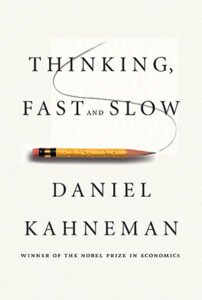|
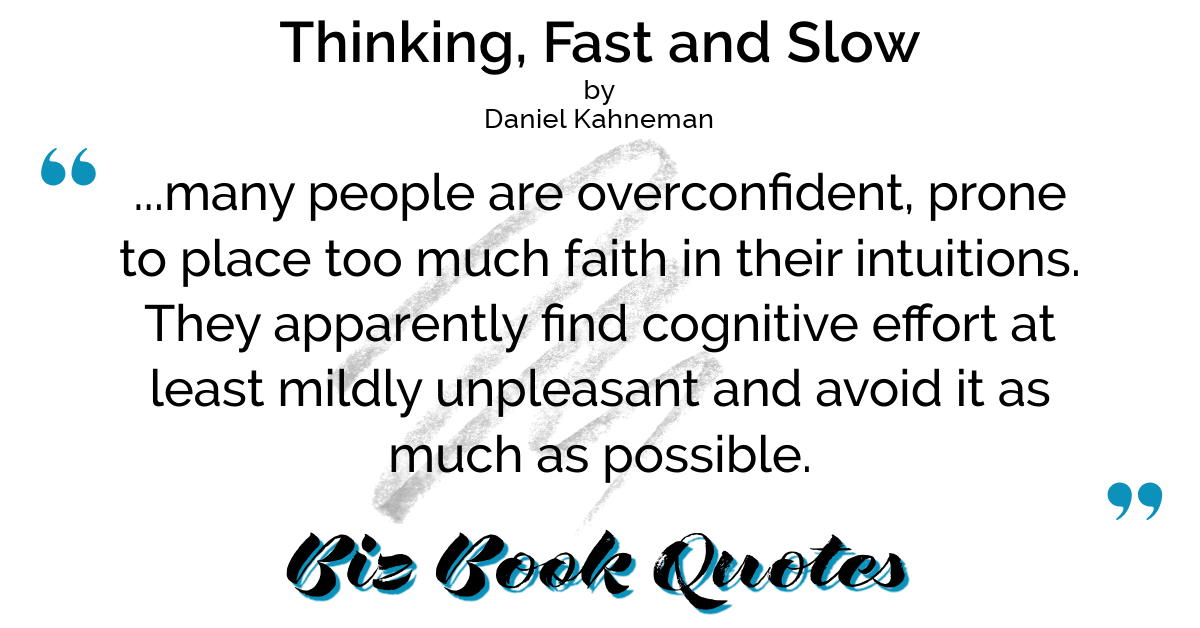
|
Thinking, Fast and Slow:
…many people are overconfident, prone to place too much faith in their intuitions. They apparently find cognitive effort at least mildly unpleasant and avoid it as much as possible.
|
045 |
|
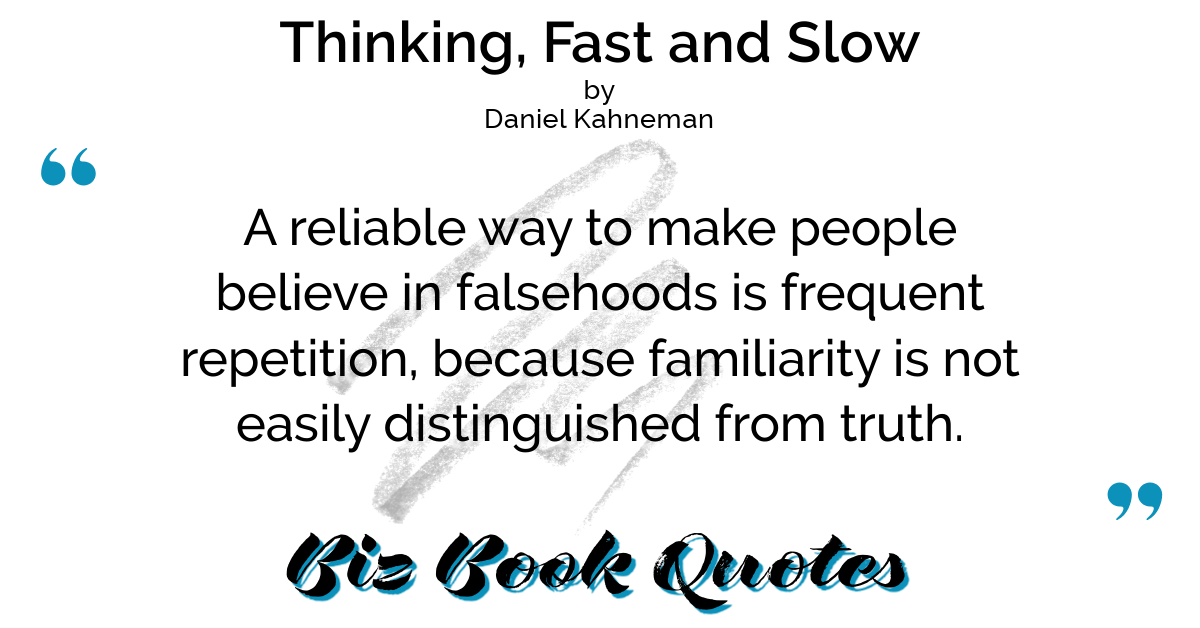
|
Thinking, Fast and Slow:
A reliable way to make people believe in falsehoods is frequent repetition, because familiarity is not easily distinguished from truth.
|
062 |
|
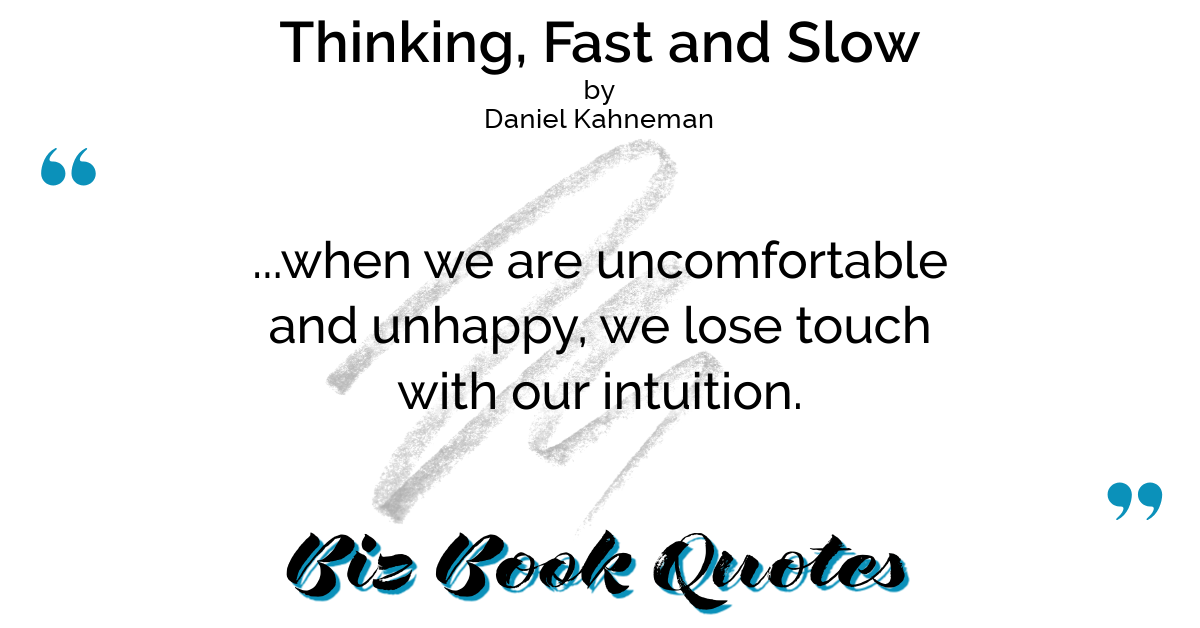
|
Thinking, Fast and Slow:
…when we are uncomfortable and unhappy, we lose touch with our intuition.
|
069 |
|
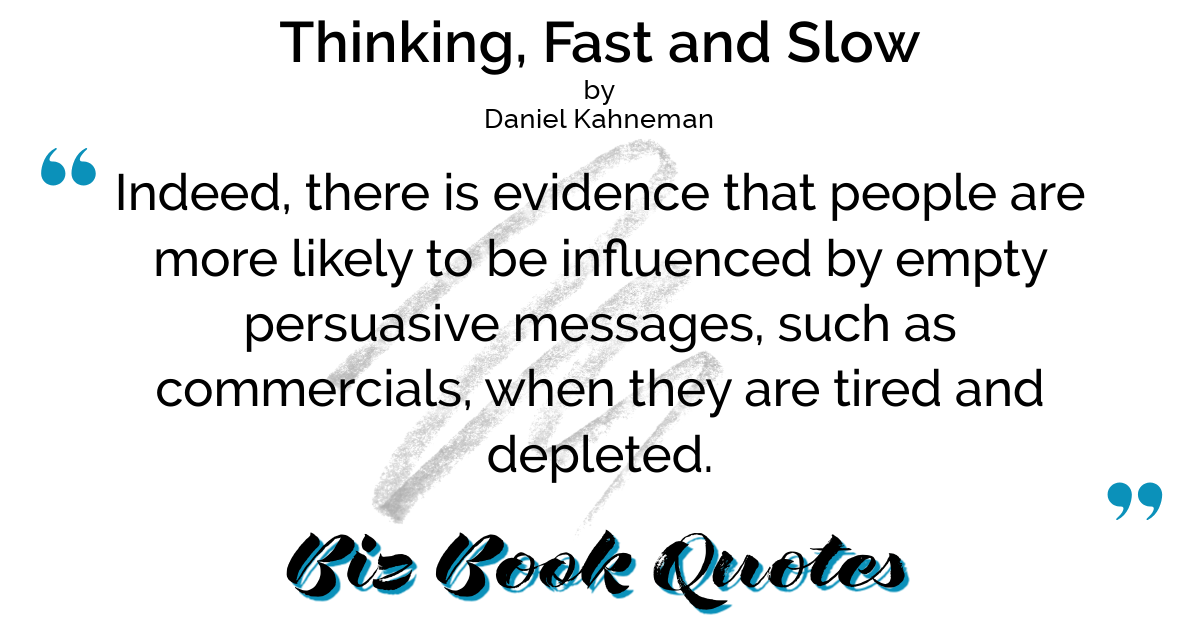
|
Thinking, Fast and Slow:
Indeed, there is evidence that people are more likely to be influenced by empty persuasive messages, such as commercials, when they are tired and depleted.
|
081 |
|
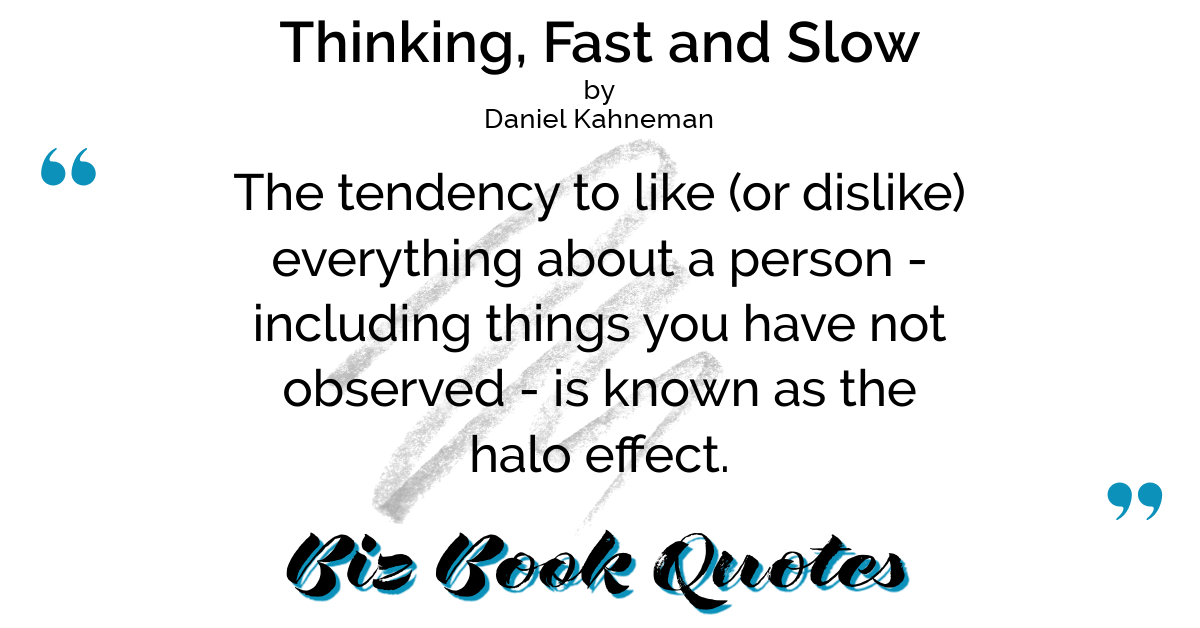
|
Thinking, Fast and Slow:
The tendency to like (or dislike) everything about a person – including things you have not observed – is known as the halo effect.
|
082 |
|
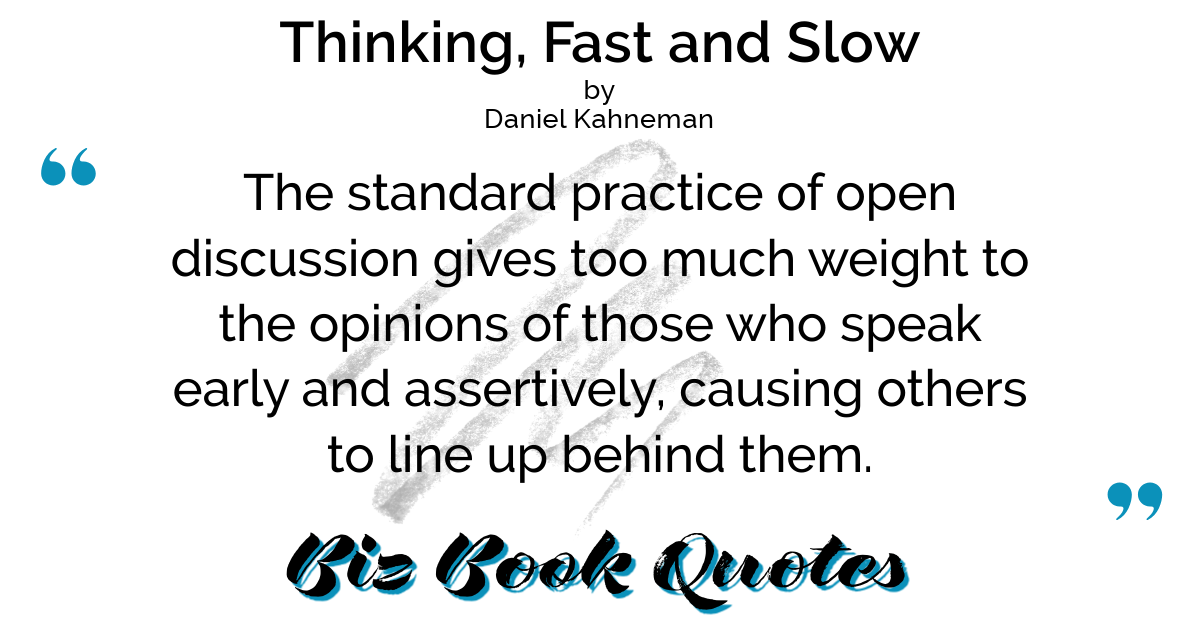
|
Thinking, Fast and Slow:
The standard practice of open discussion gives too much weight to the opinions of those who speak early and assertively, causing others to line up behind them.
|
085 |
|
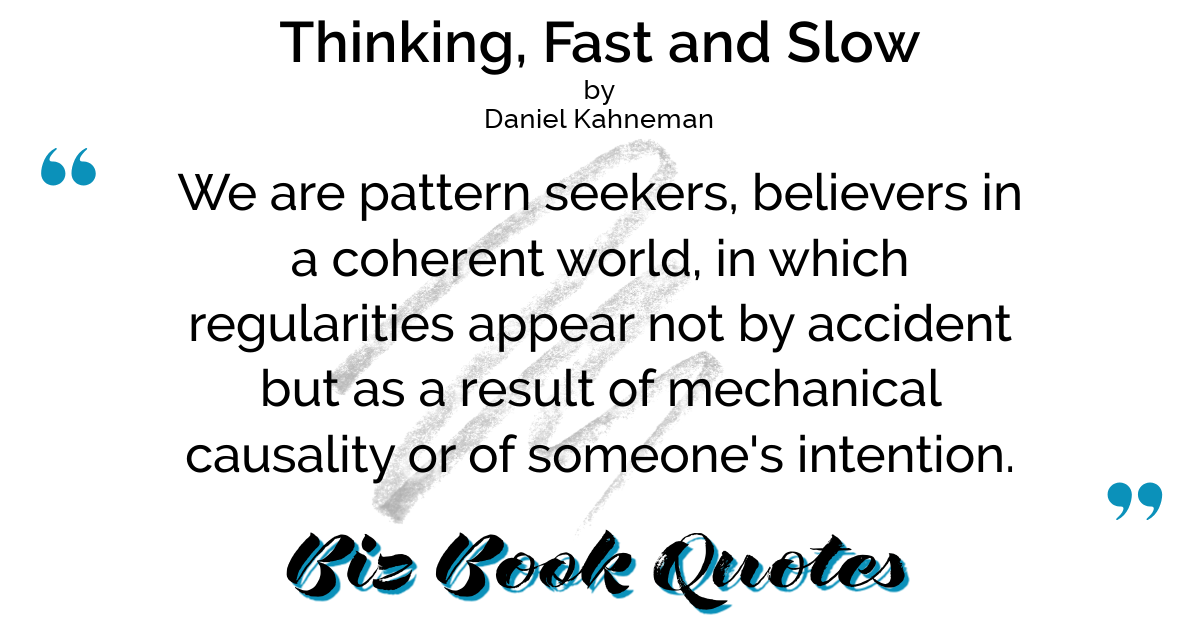
|
Thinking, Fast and Slow:
We are pattern seekers, believers in a coherent world, in which regularities appear not by accident but as a result of mechanical causality or of someone’s intention.
|
115 |
|
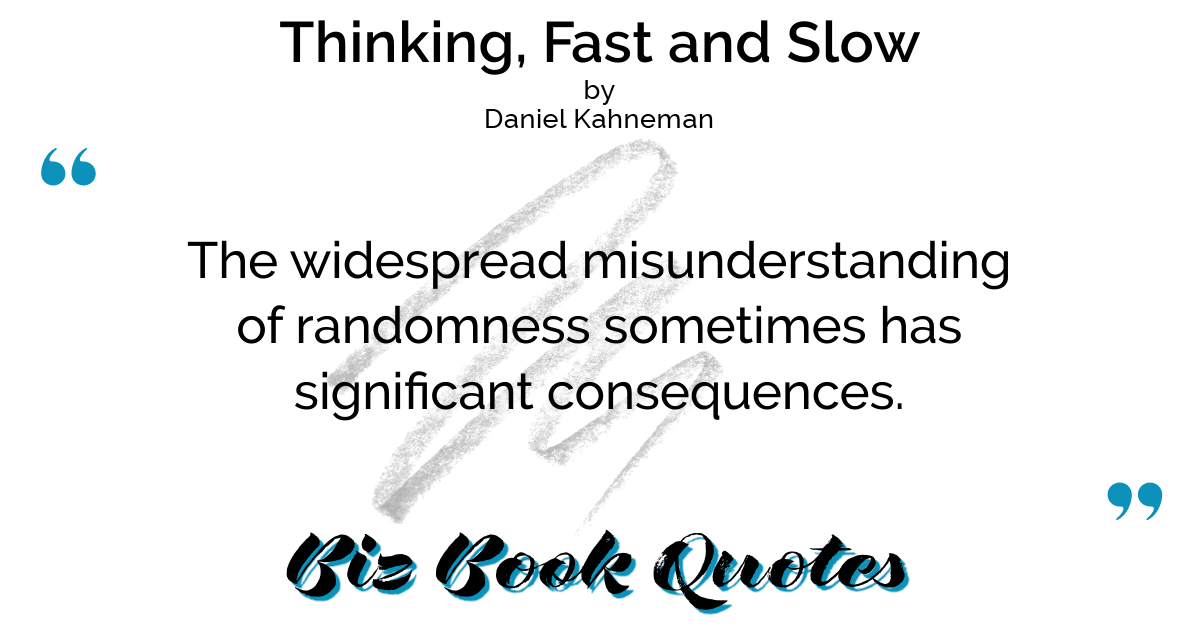
|
Thinking, Fast and Slow:
The widespread misunderstanding of randomness sometimes has significant consequences.
|
115 |
|
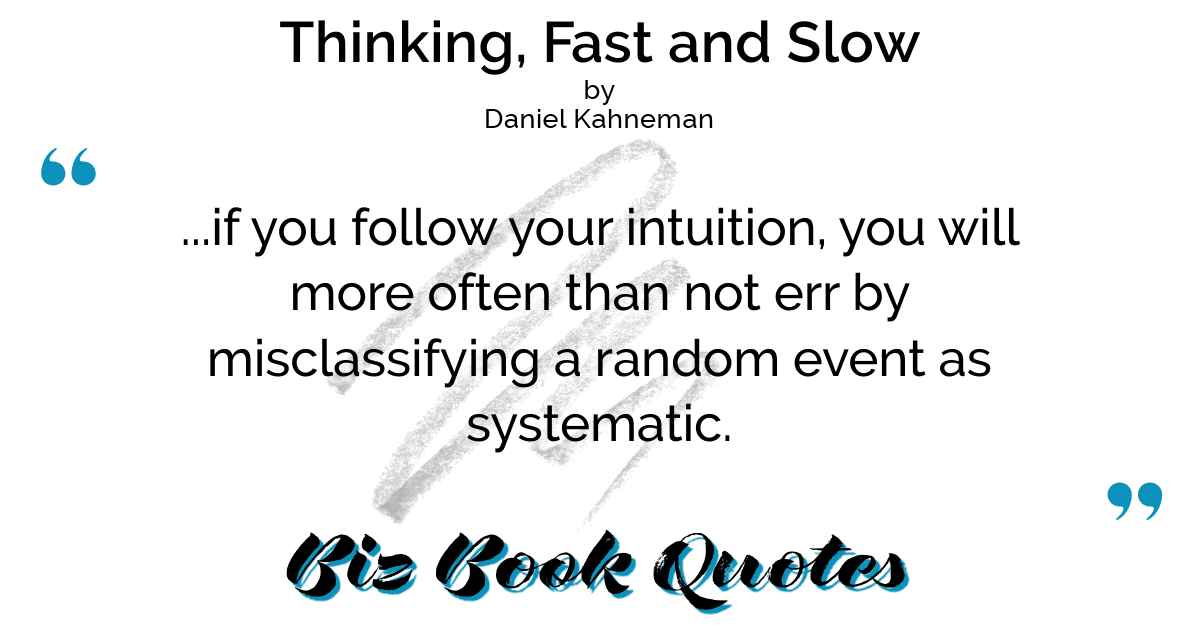
|
Thinking, Fast and Slow:
…if you follow your intuition, you will more often than not err by misclassifying a random event as systematic.
|
117 |
|
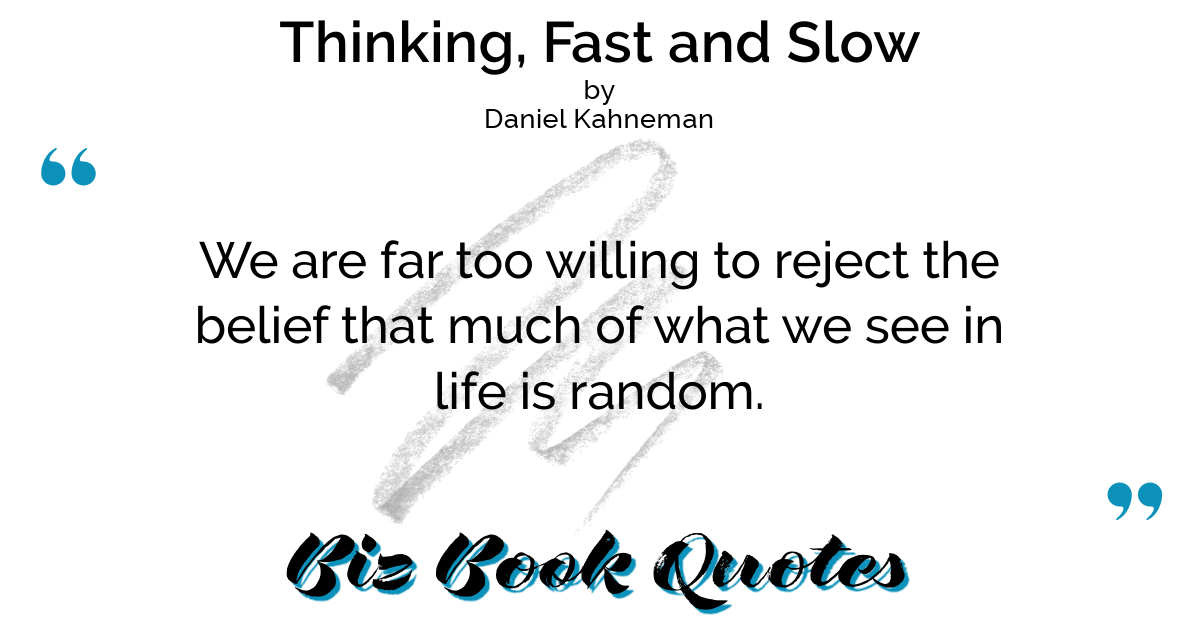
|
Thinking, Fast and Slow:
We are far too willing to reject the belief that much of what we see in life is random.
|
117 |
